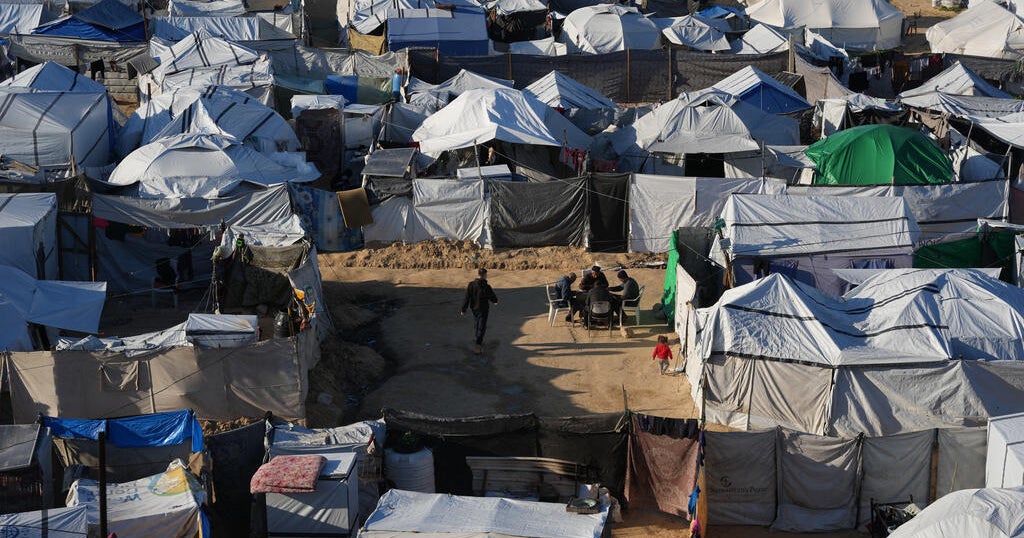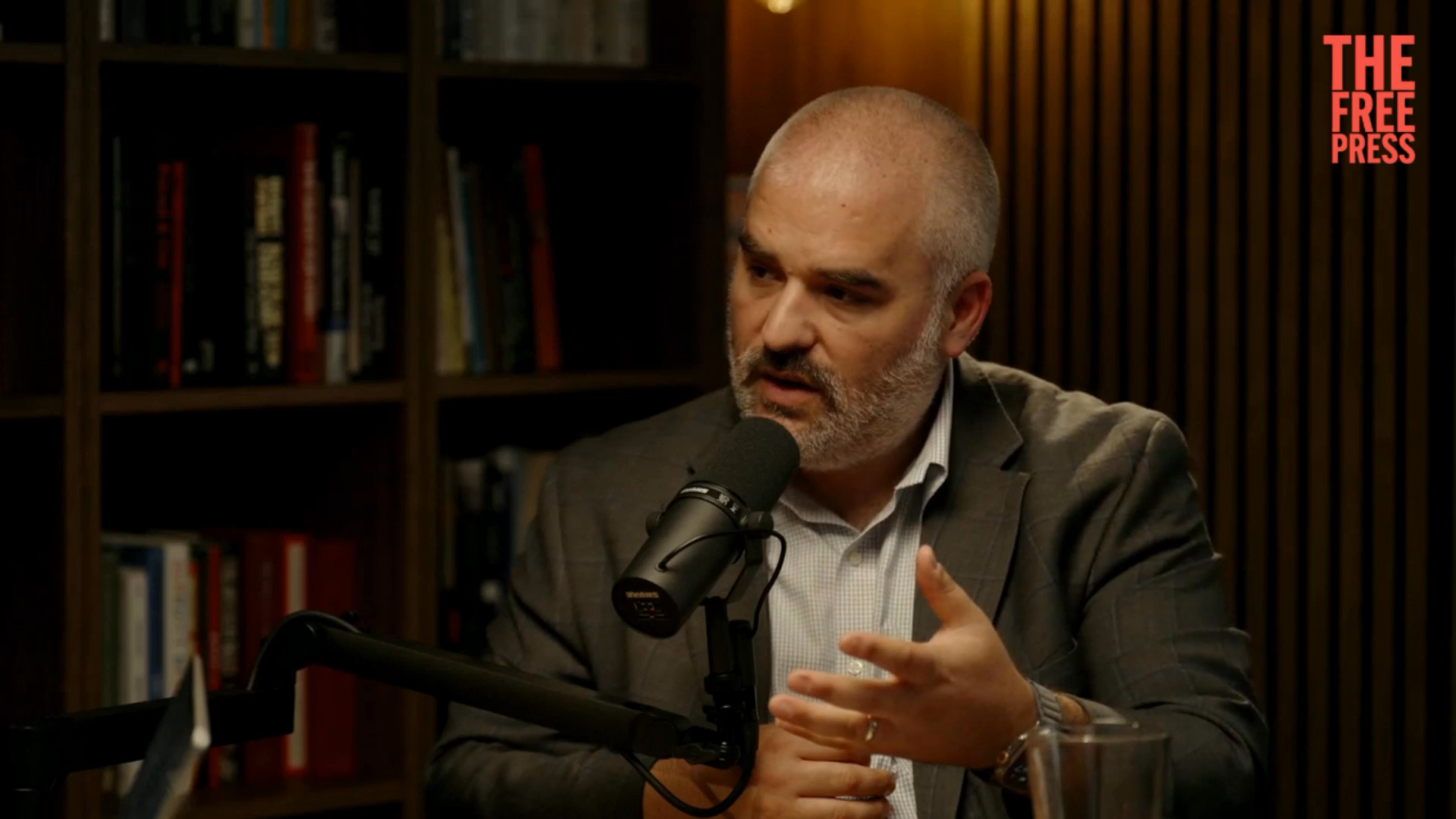Gen. David Petraeus: Hamas' attack on Israel was "far worse than 9/11"
Retired Gen. David Petraeus, who commanded America's wars in both Iraq and Afghanistan, knows from experience what Israel is facing in its war against Hamas – sending an army, even one as powerful as Israel's, into the densely-populated neighborhoods of Gaza. "This is going to be a very, very tough fight," he told CBS News. "I almost can't imagine a more challenging contextual set of circumstances here than what they face.
"There are tunnels; there will be rooms that will have improvised explosive devices," he said. "You have to clear every building, every floor, every room, every basement, every tunnel. Civilian losses are inevitable, and tough Israeli losses lie ahead as well."
Petraeus, along with British historian Andrew Roberts, has just written a book titled "Conflict," a word which has come to define the century which began on 9/11. Last week's surprise attack by Hamas terrorists is, Petraeus said, "far worse than 9/11."
As horrific as 9/11 was, the October 7 attack on Israel killed a far greater proportion of its much smaller population. "This is the equivalent of the U.S. having experienced over 40,000 losses, rather than the 3,000 terrible losses that we sustained in the attacks of 9/11," said Petraeus.
On September 11, it was planes; on October 7, it was thousands of rockets and fighters, even gliders. "The complexity of what they did was really quite extraordinary," Petraeus said.
Martin asked, "Were you surprised by the sophistication of the attack?"
"Yes," he replied. "Actually, I was more surprised that there just wasn't the awareness of what was being planned."
- What is Hamas? What to know about the group attacking Israel
- Why did Hamas attack Israel, and why now?
Petraeus was once director of the CIA, and can't understand how both Israeli and American intelligence missed preparations for the attack: "This is a very substantial operation, and the planning of it alone would have been very considerable; then, the training and equipping and positioning of forces, then the actual conduct of it. That all of that could take place and not spark much increased military readiness is really quite stunning."
Martin asked, "How do you account for it?"
"Dramatic improvement in Hamas' operational security," Petraeus replied. "Very, very creative use of these munitions and capabilities to degrade dramatically, in some cases knock out, the Israeli ability to see what is going around this quite formidable iron fence that was established."
When asked if Israel underestimated its enemy, Petraeus replied, "No question about it."
Martin asked, "What do you think Hamas hoped to achieve with this attack?"
"What their leaders have said was to get the world's attention."
"Could the Hamas objective have been as simple as 'kill Jews'?"
"That's always [their] objective," Petraeus replied. "Destroy Israel."
Hamas killed Jews, but did not destroy Israel. And now, Israel has vowed to destroy Hamas.
- Israel-Hamas war: Death toll climbs in Gaza airstrikes as Blinken visits region
- As Israel wages war in Gaza over Hamas' terror, one Palestinian tells CBS News, "They're wiping us out" ("CBS Mornings")
Asked how this will end, Petraeus said, "If the mission to the Israeli military is to destroy Hamas, if you have to destroy every headquarters, if you have to capture or kill the bulk of the leaders, if you have to do the same with the bulk of these terrorist fighters, the question is then, what do you do with Gaza once you retake it? You can't walk away from Gaza."
If Hamas is destroyed, there will be a power vacuum in Gaza which Israel can't ignore. "This is a very tough decision, if you're going to have to reoccupy and administer Gaza again," Petraeus said. "Because clearly you can't go in, destroy the Hamas infrastructure, and then leave, because again, they will reinstitute themselves."
"And what happens to the people of Gaza?" Martin asked.
"Well, they're going to suffer, and Hamas has brought this on them."
President Biden has promised to back Israel to the hilt, sending two aircraft carrier strike groups off the coast, as well as flying in fresh stocks of munitions. And with its own invasion of Iraq, the U.S. also has left Israel with an object lesson in the perils of over-reacting to a terrorist attack.
"We've made mistakes, which is what happens when a nation gets its blood up," said Martin. "Israel certainly has its blood up now."
"There should be a cautionary tale from our experiences in the wake of the 9/11 attack," Petraeus said. "Some of the actions that we took, we look at differently now. And there will come a time where some of the actions that will be taken by Israel will be looked at in a different way as well. I actually think that there is a consciousness of this in Jerusalem."
- Israel forms unity government to oversee war sparked by Hamas attack
- Israel-Hamas war latest: IDF says it's "preparing to expand" attacks on Gaza Strip
- Complete CBS News coverage: Israel and Hamas at war
For more info:
- "Conflict: The Evolution of Warfare from 1945 to Ukraine" by Gen. David Petraeus and Andrew Roberts (HarperCollins), in Hardcover, eBook and Audio formats, available October 17 via Amazon, Barnes & Noble and Bookshop.org
Story produced by Mary Walsh. Editor: Carol Ross.







